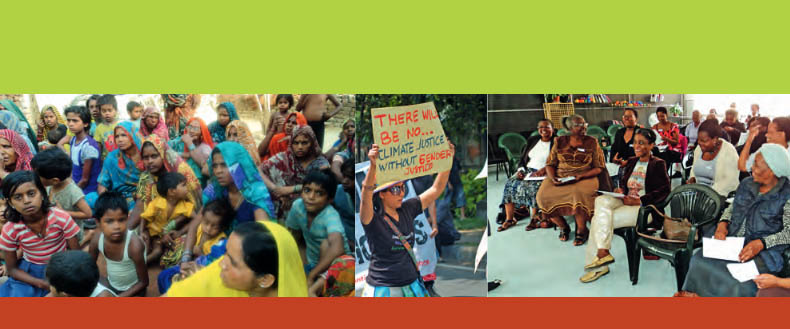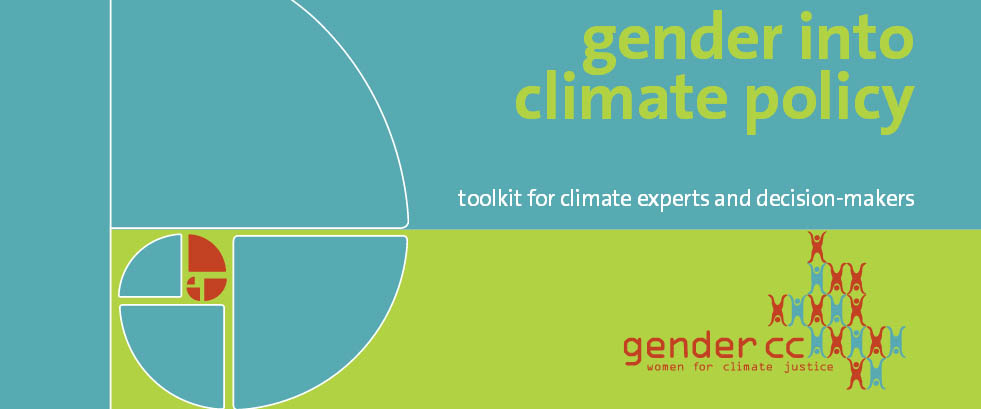Publications
Understanding the Nexus of Food, Oil, and Climate in the Sub-Saharan African Region
We are pleased to present a publication "Food, Oil, and Climate in sub-Saharan Africa" written by our esteemed member, Patricia Glazebrook. This publication delves into the impact of the Fossil Fuel Industry in the US on exacerbating climate change effects. Furthermore, it examines the situation of Women in the Agricultural Sector in Sub-Saharan Africa, particularly in Ghana. It underscores the complex relationship between oil production, economic development, and the disproportionate challenges faced by women in this sphere, despite their pivotal role in attaining food security by providing their children with nutrition that supports healthy growth.
You find the publication on our webiste here.
Gender and Climate Change Discourse in Uganda: Insights from women representatives of CSOs
This research is conducted by Elena Georgiadi in collaboration with GenderCC and explores the Gender and Climate Change discourses through an intersectional and feminist critical lens, as produced by policymakers and women representatives of CSOs in Uganda. The researcher starts from a standpoint which criticizes the “victimization discourse” which generalizes women as a vulnerable group and aims to provide positive alternatives which go beyond that narrative while acknowledging the contextual conditions which shape gendered vulnerability.
The research is devoted to Irene Dankelman. Read more here.
Recommendations for German Feminist Foreign Policy in the Field of Climate Change
Feminist foreign policy is a high claim if feminism means overcoming patriarchy. The extent to which this claim can be fulfilled by state policy is questionable. Politics must therefore constantly question itself in order to at least be aware of the tension between what is necessary and what can be achieved in real political terms. This article focuses on climate policy as a central theme of GenderCC's work.
Read more in English here.
Read in German here.
Gender-just to a better Climate policy
Sarah Louis Montgomery has contributed to the new publication of Weitwinkel. She has expressed her opinion on the importance of considering the gender aspect of the climate change. She explains how not all contribute to the climate change the same way and not all are affected by its consequences at the same level.
For now the contribution is available only in German language here.
Shifting the narratives: climate justice and gender justice
GenderCC has just published a briefing paper entitled "Shifting the narratives: climate justice and gender justice," a helpful set of principles and practices for writing and talking about gender and climate change. The briefing includes an introduction to gender and climate change issues, an overview of existing narratives, and a set of recommendations for how to effectively cover these topics, including a number of case studies. The briefing is useful for journalists and media outlets looking to expand their coverage of gender and climate change, and climate change activists and organizations who do not typically work on gender issues. You can access and download the paper here
Gender and Water Topic Review

Water is closely linked to the development of humanity. In fact since 2010, safe and clean drinking water are considered a Human Right. Due to its social significance, water is unquestionably intertwined with social dynamics, including gender roles. Gender roles shape the use and collection of water, which are traditionally associated with women in the private, domestic sphere, and the governance of water resources, which are associated with men in the public, monetary sphere. In addition, water, sanitation and hygiene (WASH), including menstrual health, is also indispensable for women and girl´s economic and social development, contributing to gender equality and the fulfilment of their rights.
Climate change affects the water cycle causing extreme weather events and altering the predictability of water availability. It compromises water quality, biodiversity and sanitation and hygiene. These produce an increased water stress and competing water uses, both for resilience and mitigation. According to the UN, 4.8–5.7 billion people by 2050 will suffer from water scarcity at least 1 month a year. The impact of climate change on water disproportionately affects women and girls in the world due to gender roles.
Download the publication here.
Gender and urban climate policy: gender-sensitive policies make a difference
GenderCC, UN Habitat and the German development agency GIZ have released a comprehensive new publication on gender-sensitive urban climate policies.
Authored by GenderCC's Gotelind Alber, the handbook recognises that although it is widely acknowledged that gender dimensions need to be addressed, most local governments do not pay attention to the diverse impacts of climate policies on women and men. It attempts to close this gap by indicating ways for local governments to integrate the gender dimensions of climate change into the various stages of policy-making. The focus is on low- and middle-income countries.
The handbook is not meant to be exhaustive, but instead offers a starting point for introducing gender concepts and gender dimensions of climate change. It provide a range of resources, tools and ideas for action to climate policy decision-makers, consultants and practitioners in local governments. Moreover, it is also intended to assist women’s groups and other civil society and community-based organisations to get involved in local climate policy and advocate for a gender-sensitive approach.
Download the publication here.
Working towards gender-sensitive national climate policy

Released in 2014, the publication "Gender and climate change: working towards gender-sensitive national climate policy", presents seven case studies of women advocating for and analysing gendered responses to climate change at a national level.
These analyses are largely through observations of existing national climate change action plans and grassroots movements in Kenya, Bangladesh, the Pacific Islands, India, Pakistan, and South Africa.
The publication should serve as a tool for policy makers, researchers, and activists when incorporating, or working towards the incorporation of, gender-sensitivity in national climate policy.
You can download the publication here.
Gender into climate policy: toolkit for climate experts and decision-makers

Women’s organisations and gender activists have been lobbying consistently for the recognition of gender issues and the inclusion of women in decision-making in the UNFCCC process for more than a decade, developing sharing positions on mitigation, adaptation, financing, REDD, technology transfer, and further topics. Thoughan increasing number of people now recognise that sustainable and effective climate policy needs to integrate a gender perspective, knowledge on the implementation of gender-responsive policy is still lacking.
Therefore GenderCC has developed a toolkit for climate experts and decision-makers covering the major issues of the climate change negotiations. It provides knowledge and introduces methods to be used for mainstreaming gender into climate policy. The intention is to inspire a deeper appreciation of the vital significance of gender as an essential consideration in dealing with the social dimensions of climate policy. The toolkit explains gender and equity concepts and gives an overview of options and ideas which you can adapt to your needs.
The toolkit can be downloaded here.

